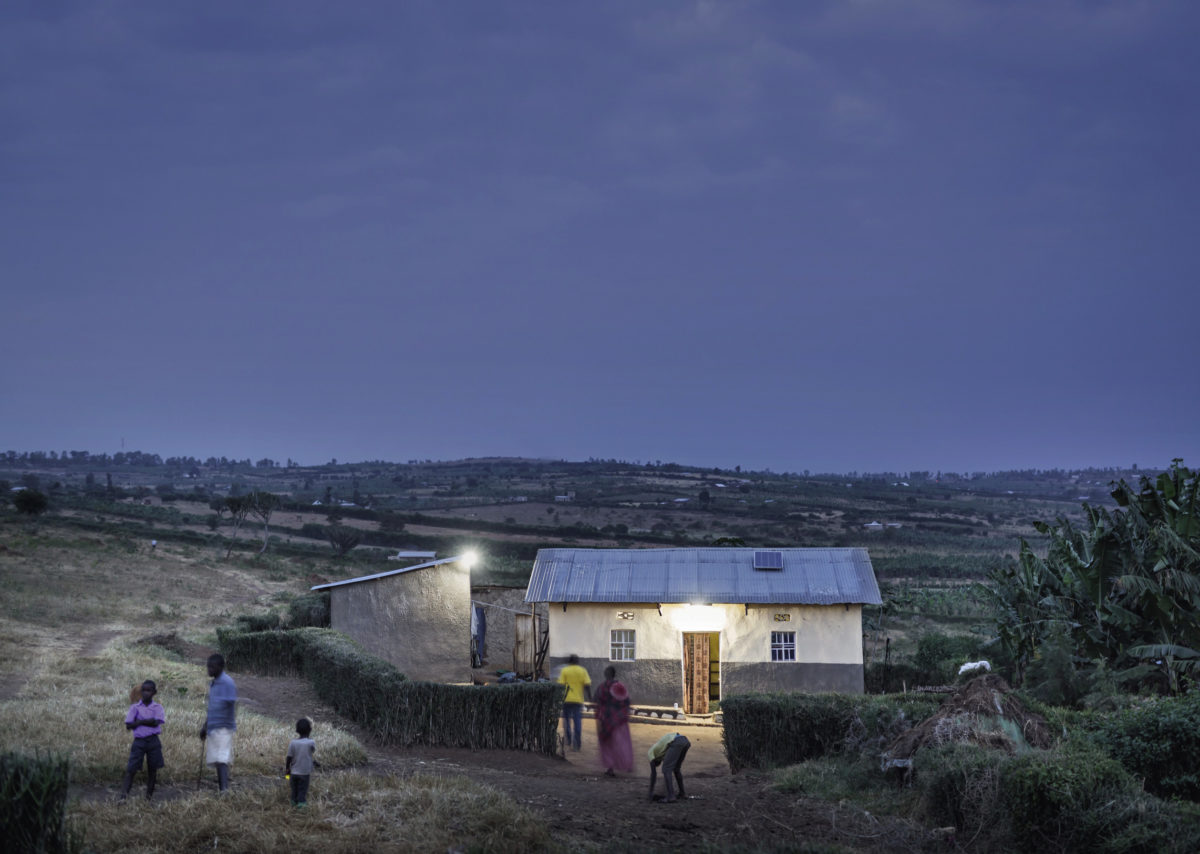Even five years ago, when describing the PAYG solar home system business model, few people would have expected that the industry would have raised over $600 million in financing. If the $600 million figure wasn’t evidence enough, two acquisitions in the PAYG solar sector in 2017 underscore the market’s evolution. At the end of June, Mobisol acquired PAYG software provider Lumeter, to enhance its own PAYG software offering. Then in October, ENGIE became the first major energy company to enter the solar home system market through its acquisition of Fenix International.
Market specialization
When starting out, early movers in the PAYG solar home system market had to do everything in the value chain, from technology design, financing, and distribution. As the market has matured, companies have focused on their core strengths and have specialized. This need for specialization is what motivated Mobisol’s acquisition of Lumeter, says Klaus Maier, Head of Partnerships and Expansion at Mobisol.
“Given the rapid innovation in the sector, every solar home system company needs to ask themselves how they can evolve to stay relevant in this changing market,” Maier tells pv magazine. “At Mobisol, we reflected on our core strengths in innovation, R&D, and software development and decided to diversify by providing a PAYG software-as-a-service offering.” The acquisition of Lumeter accelerated Mobisol’s development of their software-as-a-service business model. After the acquisition, Mobisol’s 150,000 software customers across 13 countries provide rich sources of data and operational experience.
Not only has the maturity in the solar home system market prompted the need for firms to specialized, but market growth has also allowed established solar home system companies the stability and resources to develop new business models. According to Maier, “The development of the software-as-a-service model was only possible because Mobisol has reached a critical level of maturity as a business where we could develop another revenue stream without detracting from our existing operations.”
The first exit
The acquisition of Fenix International by ENGIE represents a milestone in the PAYG solar home system industry, by demonstrating to investors and other PAYG companies that large energy companies are showing an interest in the sector.
Ben Attia, a Solar Analyst covering energy access markets at GTM Research, reiterates this point to pv magazine by saying, “The PAYG space has grown by impressive leaps and bounds in recent years, and the business model is proven and has scaled quite effectively. The ENGIE acquisition alone validates the business model, and will not be the only acquisition by a global energy player seeking to enter the PAYG space.”
The acquisition demonstrates a clear exit strategy for PAYG companies, which should accelerate overall equity investment in the PAYG market. Lyndsay Handler, CEO of Fenix International, explains to pv magazine that, “The acquisition of Fenix sends a very positive signal to all investors in the space that there are commercial exits for PAYG companies. Investors’ concerns over the lack of any exits in the space have impacted overall equity investment. Everyone was asking the question: Are large-scale energy players interested in this space? Fenix’s acquisition by ENGIE shows that the answer is yes.”
While equity investment is critical for companies to scale, the PAYG solar home system business model also requires significant amounts of debt financing. Handler goes on to emphasize the role the acquisition will play in helping PAYG companies access debt financing. “Reaching the nearly 600 million people in Sub-Saharan Africa without electricity access requires substantial amounts of debt. The acquisition by ENGIE should send a signal to local banks that PAYG solar home systems are a commercial opportunity. Once the local banks believe there is money to be made in PAYG solar, PAYG companies will have greater access to low-cost debt denominated in local currency.”
Financing costs play a critical role in the overall cost of PAYG solar home systems. Handler explains that “to pass on more affordable services to our customers, we need to lower financing costs. Fenix International offers one of the most affordable solar home systems on the market, yet over 50% of families in Uganda still cannot afford electricity access through our platform.”
Stefan Issler, Head of Direct Investments and Energy Debt Financing at responsAbility Investments, a leading off-grid financier, tells pv magazine how acquisitions will impact the PAYG sector. “Strong shareholders clearly improve a company’s risk profile, thus facilitating access to funding. Similarly, mergers and acquisitions can lead to more cost effective operations, making a company more attractive for financing partners.”
Through the acquisition, Handler believes that Fenix can lower its total system cost not only through accessing lower-cost debt but also through lower system costs. “We now can leverage ENGIE’s name recognition and established supply chain to negotiate lower prices from our suppliers.”

Beyond the cost and financing benefits that the acquisition brings, the long-term financial stability allows Fenix to redirect the company’s energy from continually raising capital to accelerating deployments. As Handler explains, “The acquisition originated during discussions with ENGIE about being our lead investor for our series C. ENGIE’s vision for the off-grid market aligned with our own, and the acquisition allowed us to better realize our long-term vision.”
Raphael Tilot, Chief Customer Solutions Officer at ENGIE, echoes Handler’s sentiments during an interview with pv magazine. “ENGIE believes the solutions to provide everyone on the planet with electricity access exist today. The technology exists and financing is available. We now just need to make it happen.” ENGIE aims to be a leader in the off-grid energy space and seeks to provide at least 20 million people with electricity access by 2020.
“For solutions that are commercially viable, we believe a large, private company like ENGIE can accelerate the deployment of these solutions,” says Tilot. “We think that solar home systems have now reached a stage of maturity where they are ready to be rapidly scaled up. Our goal in the acquisition of Fenix was to combine the best of a large, established company and an innovative startup. ENGIE makes long-term investments and isn’t looking for an exit strategy for our investment in Fenix.”
Despite being accustomed to competition in established energy markets, ENGIE is not concerned about competition in the solar home system market. Tilot explains that “given the number of people without electricity, there is room for numerous players in this market.” According to Handler, “in the last few years, people would say the PAYG solar sector was becoming rather crowded, but when you look on the ground, there are still so many people without electricity access.”
All companies working in the PAYG solar home system sector are focused on impact as well as returns, and the ENGIE acquisition should help Fenix expand on both fronts. Though the acquisition will also have additional benefits for development in Sub-Saharan Africa. As Handler explains, not all PAYG companies provide equity to their African employees. “At Fenix, we provided 100% of our employees with equity including our 330 Ugandan employees. The ENGIE acquisition will, in turn, give some of our employees an opportunity to start their own enterprises, further accelerating innovation in Africa.”
Author: Dustin Zubke
This content is protected by copyright and may not be reused. If you want to cooperate with us and would like to reuse some of our content, please contact: editors@pv-magazine.com.
